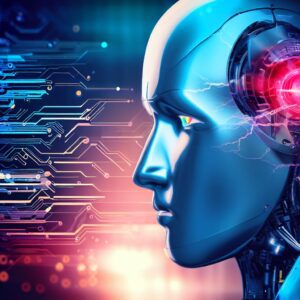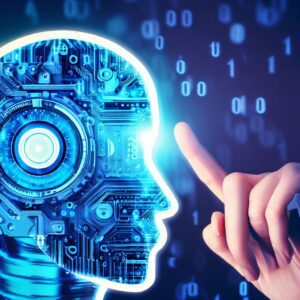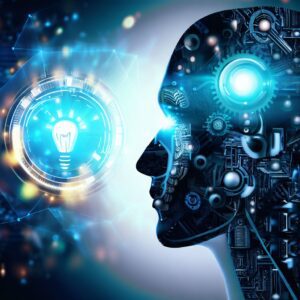Artificial intelligence (AI) has become a revolutionary force in the rapidly changing technological world, reshaping businesses and altering how humans interact with machines. The simulation of human intellect in computers, known as artificial intelligence (AI), has unquestionably brought about a number of benefits and drawbacks that have broad ramifications for organizations, society, and individuals. Artificial Intelligence Advantages and Disadvantages, often abbreviated as AI pros and cons, form a critical topic in today’s tech-driven world.
In this extensive piece, we dig into artificial intelligence and examine its unique benefits and potential drawbacks. Artificial Intelligence is transforming industries, but it comes with its own set of advantages and disadvantages. In this exploration, we delve into AI’s remarkable benefits and potential drawbacks, shedding light on how it impacts our lives and the world around us. Let’s uncover the AI landscape, one advantage and disadvantage at a time.
Advantages of Artificial Intelligence
1. Enhanced Efficiency and Productivity
One of AI’s key benefits is its capacity to greatly increase production and efficiency across a range of industries. AI-driven automation enables firms to more efficiently deploy resources by streamlining previously time-consuming operations. AI enables businesses to do more with fewer personnel by automating customer service inquiries and improving supply chain processes.
2. Data Analysis and Insights
AI is excellent at quickly processing and analyzing large datasets. With this capacity, firms have additional opportunities to learn important lessons about consumer behavior, market trends, and operational efficiency. Companies may make data-driven decisions that promote growth and competitive advantage by utilizing AI-driven analytics.
3. Personalization
The way that businesses interact with their clients has been completely transformed by AI’s capacity to comprehend and predict user preferences. greater customer satisfaction and greater sales are the results of more precise personalization in marketing and content suggestions. AI is at the core of these customized experiences, whether it is Netflix proposing your next binge-worthy series or Amazon offering things based on your preferences.
4. Healthcare Advancements
AI has the ability to save lives and enhance patient care in the realm of healthcare. Medical data analysis and illness detection using machine learning algorithms can help with therapy suggestions. Furthermore, robotic procedures driven by AI are getting more accurate, lowering the possibility of surgical errors due to human mistakes.
5. Predictive Maintenance
AI can give a big advantage to industries that rely on machines and equipment by using predictive maintenance. AI can predict when machines are likely to stop working by looking at data from sensors and how well the machine is performing, which helps to fix problems before they happen. This reduces the time when things are not working while also saving costs on upkeep.
In simple words
- Helps Us Work Faster: AI can make our jobs easier. It can do things quickly, like answering questions from customers or helping factories make things faster.
- Knows a Lot from Data: AI is similar to a data sleuth. It can examine a tonne of data and uncover interesting facts that we were unaware of. This supports commercial decision-making.
- Personalized Things: Have you noticed that Netflix suggests interesting films? AI is that! It gets to know your preferences and makes recommendations based on those.
- Better Medicine: In hospitals, AI can help doctors. It looks at patient data and can find illnesses early. It’s also good at doing surgery carefully.
- Fixes Things Before They Break: If you have a big machine, AI can tell when it’s about to break. This saves time and money because we can fix it before it’s a big problem.
Disadvantages of Artificial Intelligence
1. Job Displacement
AI increases efficiency and automates tasks, but it also sparks worries about job loss. Automation has replaced some formerly performed human duties, which has resulted in employment losses in several industries. The workforce must be retrained and upgraded as a result of this transition in order to keep up with the evolving employment market.
2. Data Privacy and Security
The enormous volume of data needed for AI algorithms to operate properly presents serious problems for data privacy and security. Real issues include data breaches and unauthorized access to private data. It’s difficult to strike a balance between using data effectively and preserving people’s privacy.
3. Bias and Fairness
The effectiveness of AI algorithms relies on the information they learn from. Artificial intelligence systems can make biases stronger and amplify them if the data used to train them already has biases in it. The outcomes of this could be unfair, especially in areas like finance, jobs, and law enforcement. It is difficult to make sure that AI decisions are fair, and it requires ongoing effort to address this.
4. Dependence on Technology
Unchecked overreliance on AI systems can result in catastrophic failures. For instance, autonomous vehicles must function flawlessly to guarantee safety. Without a failsafe mechanism, placing too much trust in AI has serious hazards.
5. Ethical Concerns
Deeply troubling ethical issues are also brought up by AI, notably in the context of autonomous weaponry and deepfake technology. Governments, organizations, and society at large have serious concerns about ensuring that AI is created and used ethically.
In simple words
- Less Jobs: When AI does some jobs, people might lose their jobs. Imagine if a robot did your job! That’s tough for many folks.
- Privacy and Safety: AI uses lots of personal information. Sometimes, this info isn’t kept safe, and people can steal it. That’s bad for our privacy.
- Unfair Choices: AI can make unfair choices because it learns from people. If people are biased, AI can be too. This can be a problem in things like hiring and loans.
- Too Much Trust: We can be too trusting in AI at times. For instance, self-driving cars require supervision. Utilizing AI exclusively can be risky.
- Hard Decisions: AI can do things that aren’t right or fair. Like making fake videos that look real. This is tricky and needs rules to keep it in check.
Real-Life Applications of AI
Artificial Intelligence, or AI, is like a smart helper that can do amazing things in the real world. It’s not just in movies; AI is all around us, making life better and easier.
- Healthcare: AI helps doctors by looking at X-rays and scans to find problems early. It can also remind people to take their medicine.
- Smart Assistants: Have you talked to Siri or Alexa? They’re AI! They answer questions and control your gadgets.
- Self-Driving Cars: AI can drive cars safely. It sees the road and other cars, making travel safer and more comfortable.
- E-commerce: When you shop online and see suggestions for things to buy, that’s AI learning what you like.
- Finance: Banks use AI to spot fraud and manage money. It’s like a money guardian.
- Education: AI helps students learn better. It can personalize lessons and provide extra help when needed.
- Entertainment: Streaming services use AI to recommend movies and songs you might enjoy.
- Customer Service: AI chatbots can answer your questions quickly, day or night, on websites.
- Manufacturing: AI robots help make products faster and with fewer mistakes.
In our daily lives, AI is making things smarter and more convenient. It’s like having a helpful friend always there to assist us.
Conclusion
In the age of Artificial Intelligence, the advantages and disadvantages of this technology are intertwined, shaping the path forward for humanity. While AI holds immense promise for enhancing efficiency, improving healthcare, and personalizing experiences, it also brings challenges related to job displacement, data privacy, and ethical concerns.
As we navigate the evolving landscape of AI, it is imperative that we strike a balance between harnessing its potential and addressing its pitfalls. The responsible development and use of AI will determine how we harness its advantages while mitigating its disadvantages, ensuring a brighter future for all.


